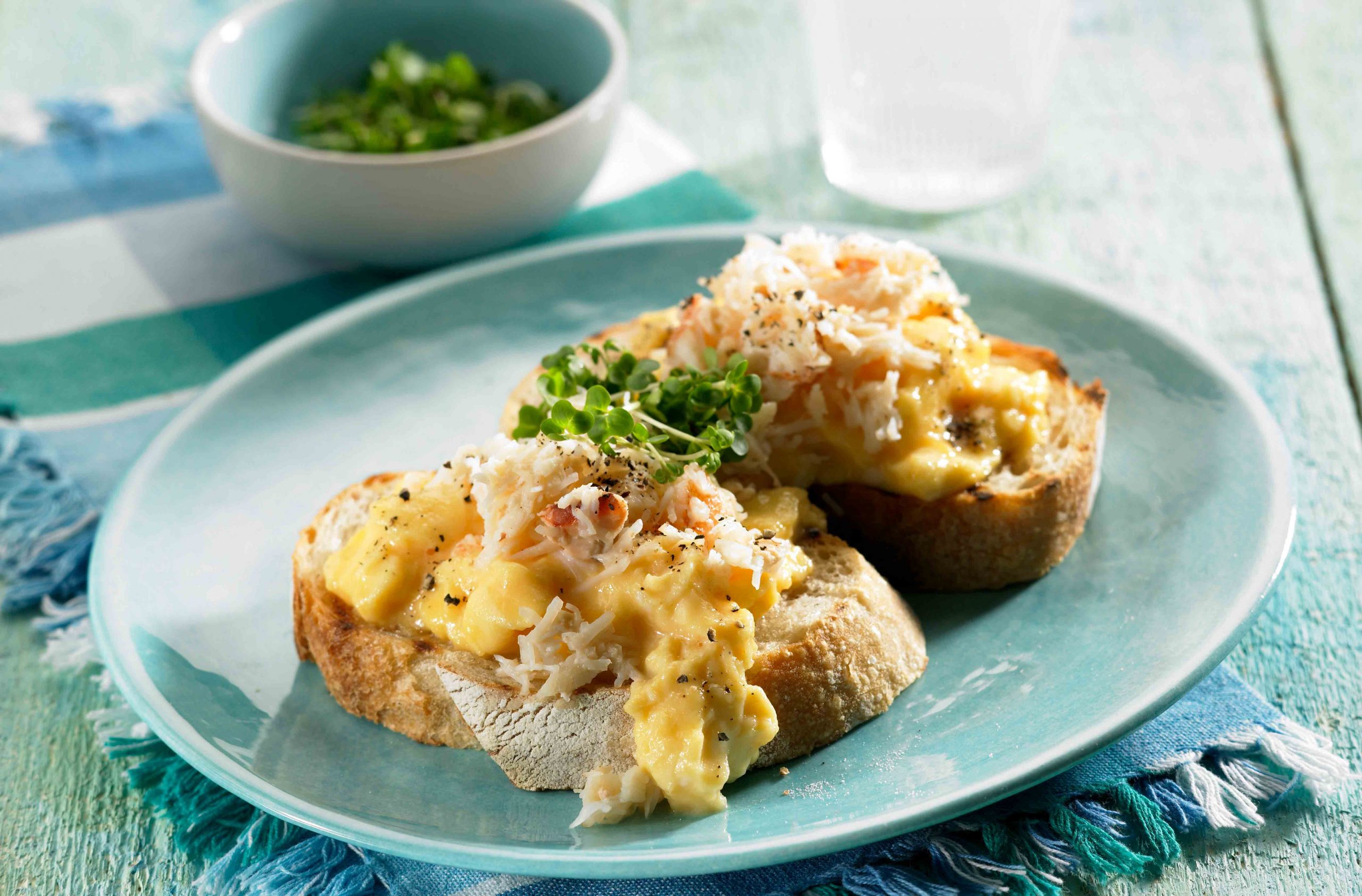Crisp garlicky toast topped with creamy scrambled eggs and delicious fresh crabmeat.
Scrambled egg and crab makes the perfect posh lunch or brunch for two. The flavours are more delicate than the more traditional pairing of smoked salmon and scrambled egg, but they work just as well. To really make the dish stand out, rubbing the toast with a little garlic before you add the eggs is such a simple trick. And it's so effective. Essentially you've made the easiest garlic bread ever. You can use a drained tin of crabmeat here but if possible go for a tub of the fresh stuff. The texture is lighter and fluffier and it just goes better with the warm scrambled eggs.
Ingredients
- 1 tbsp olive oil
- 2 large or 4 small slices white country-style bread
- 1 clove garlic, halved
- 30g (1oz) butter
- 4 eggs, beaten
- 100g tub white crabmeat
- A little cress, to garnish
- Salt and freshly ground black pepper
WEIGHT CONVERTER
Method
- Drizzle the olive oil over both sides of the bread. Griddle the slices for a few mins until browned and crisp. Rub one side of each slice with the garlic clove to get as much flavour into the bread as possible.
- Meanwhile, melt the butter in a small pan, add the beaten eggs and cook over a low heat, to scramble them.
- Spoon the eggs on the garlic-flavoured toast, then top with the crabmeat and garnish with cress. Sprinkle with salt and freshly ground black pepper.
Top tips for making scrambled egg and crab
The key to good scrambled eggs is cooking at a lower temperature for longer. If you cook them too quickly they can seize up and you're left with a rubbery egg solids and runny egg water disaster. Also, cook your eggs from room temperature, not fridge-chilled.
You might also like…
Parenting advice, hot topics, best buys and family finance tips delivered straight to your inbox.

Octavia Lillywhite is an award-winning food and lifestyle journalist with over 15 years of experience. With a passion for creating beautiful, tasty family meals that don’t use hundreds of ingredients or anything you have to source from obscure websites, she’s a champion of local and seasonal foods, using up leftovers and composting, which, she maintains, is probably the most important thing we all can do to protect the environment.

